Current Courses:
In Winter Term 2024/2025, the following courses with Himalayan content will be taught at UBC-Vancouver:
Courses Offered in Term 1:
|
|
Tibetan Buddhism Religious terrian of the Tibetan cultural realm, looking at the history and development of Tibetan Buddhism and key ideas of the four main Tibetan Buddhist traditions. Instructor: Tsering Shakya |

|
Directed Readings The credit value of this course will be determined in consultation with the student prior to the registration Instructor: Tsering Shakya
|

|
Introduction to Tibetan I Concepts, grammar, syntax of spoken and written Tibetan for beginners. Also covers aspects of Tibetan worldview. Instructor: Sonam Chusang |

|
Classical Tibetan I The basics of classical Tibetan grammar and vocabulary, with readings from a selection of daily prayer verses. Recommended pre-requisite: completion of TIBT 100 or TIBT 390 with a minimum grade of 60%. Instructor: Sonam Chusang |
Courses Offered in Term 2:

|
Tibetan and Himalayan Culture and Society Religious terrain of the Tibetan cultural realm, looking at the history and development of Tibetan Buddhism and key ideas of the four main Tibetan Buddhist traditions. Instructor: Tsering Shakya |

|
Indigenous Environmentalism in Asia and Beyond (B) A survey of the histories and cultures of Asia before 1600 and the coming of the Europeans. Emphasis will be given to parallel themes in the development of the civilizations of South, Southeast and East Asia. Instructor: Pasang Sherpa |

|
Biocultural Diversity: Language, Community and Environment Critical exploration of the links between linguistic, biological and cultural diversity; including connections with linguistic relativity, linguistic identity, language and place; and strategies for collective, interdisciplinary action to promote and support the protection of languages, cultures, and the environment. Instructor: Pasang Sherpa |

|
Introduction to Tibetan II Focus on grammar, syntax, and structures to improve comprehension and communication skills. Also covers aspects of Tibetan worldview. Recommended pre-requisite: TIBT 100. Instructor: Sonam Chusang |

|
Classical Tibetan II The basics of classical Tibetan grammar and vocabulary, with readings from a selection of daily prayer verses. Recommended pre-requisite: completion of TIBT 100 or TIBT 390 with a minimum grade of 60%. Instructor: Sonam Chusang |
Past Courses:
The following additional courses have been offered in the past and have significant Himalayan content.
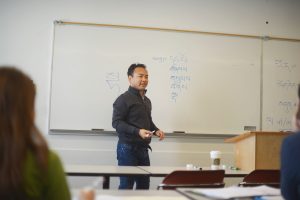 |
Introduction to Tibetan I Concepts, grammar, syntax of spoken and written Tibetan for beginners. Also covers aspects of Tibetan worldview. |
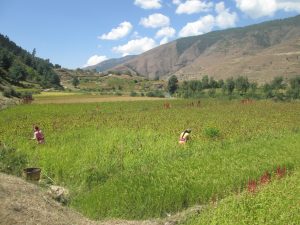 |
Indigenous Environmentalism in Asia and Beyond Examination of Indigenous Peoples responses to environmental change in Asia and beyond, with special focus on Asia-Pacific and transpacific perspectives. Approaches drawn from Indigenous Studies, Environmental Humanities, Science and Technology Studies, and Sustainability Studies. |
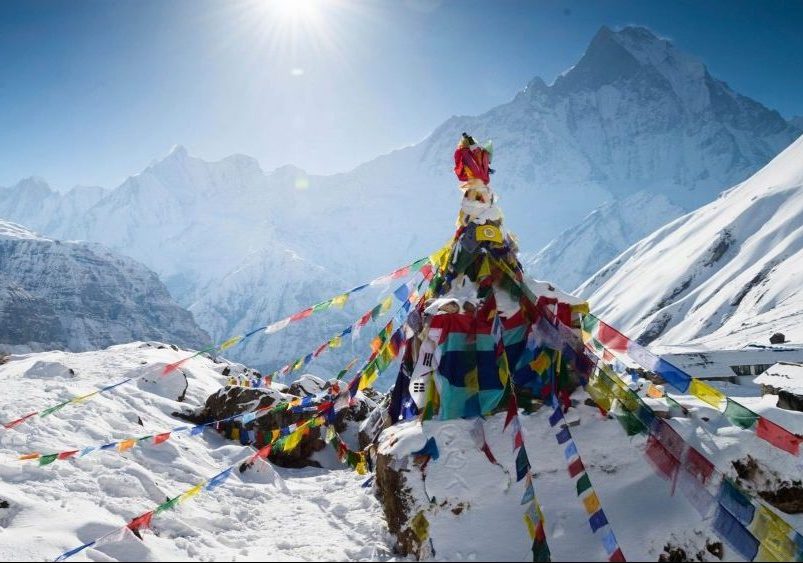 |
Tibetan and Himalayan Culture and Society The Himalayas -- stretching from Northern Pakistan to Myanmar to China, with the Tibetan Plateau occupying a central position, have long captured the global imagination. The mountainous region has become a site of mass tourism and attracted academic studies in a variety of fields, from anthropology and religious studies to development and environmentalism. This course introduces ways of understanding the Himalayan region through interdisciplinary approaches in social sciences and the humanities. Students will explore the languages, history, ethnicities, and religious traditions of the Himalayas, as well as popular representations of them in the West. This course will also examine specific topics, such as the history and impact of trekking, mountaineering, and the imperatives of development and conservation. |
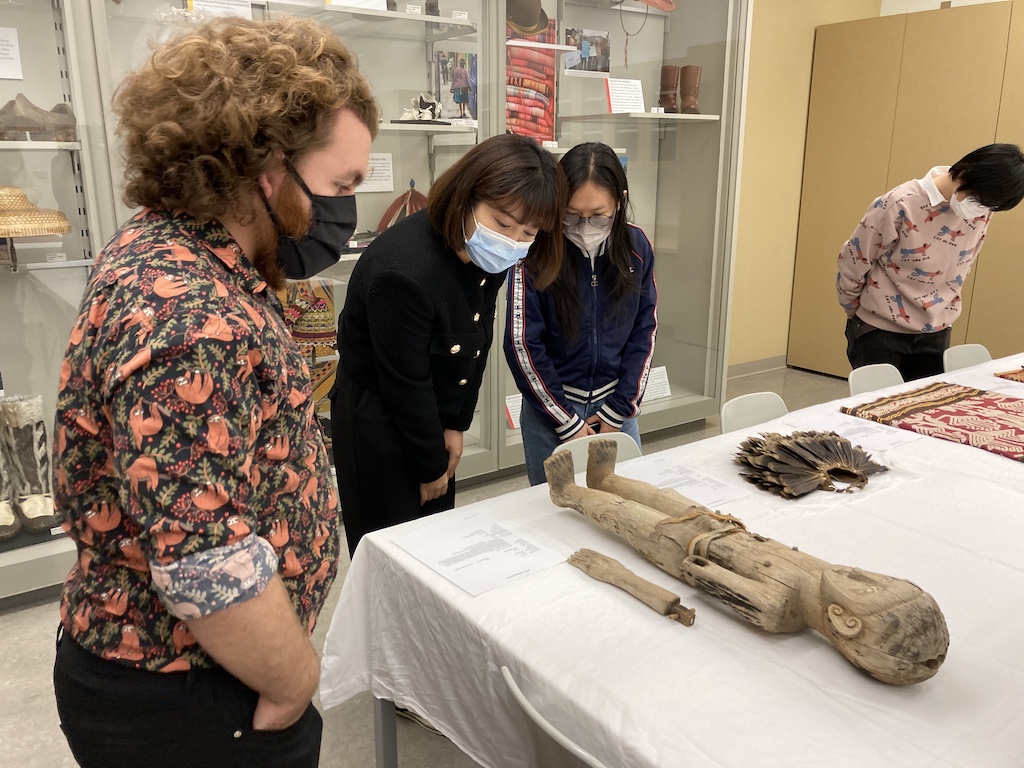 |
Asia in Museums and Beyond Museological representations of Asia in colonial and post-colonial contexts, including exploration of art and photography at museums. All classes will be held in person in the room indicated or in museum galleries and in person attendance is mandatory for the course. |
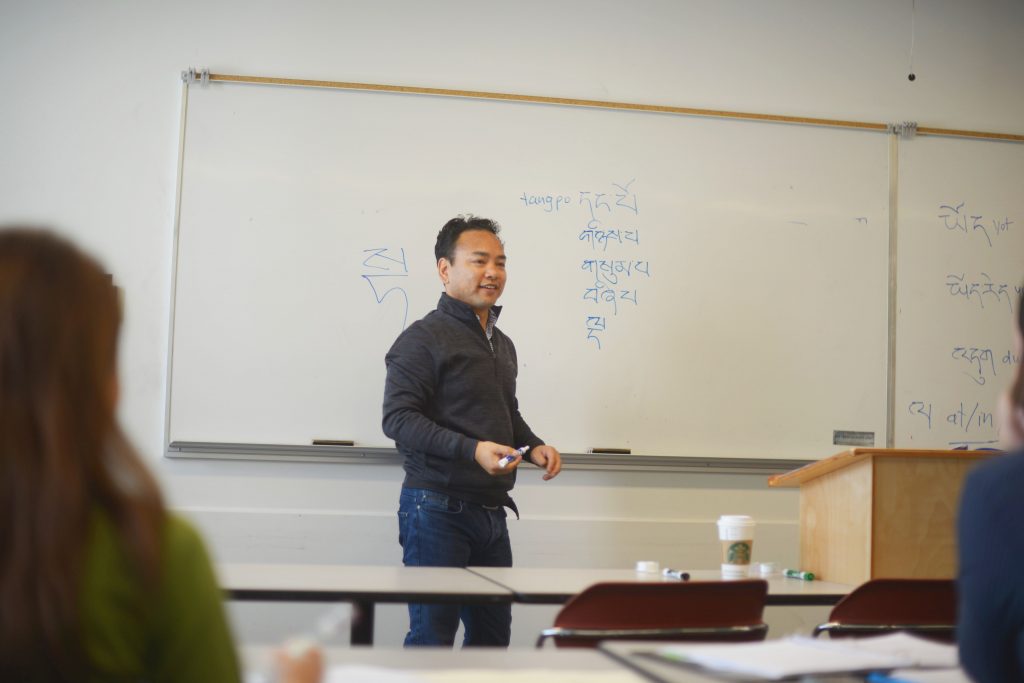 |
Introduction to Tibetan I Concepts, grammar, syntax of spoken and written Tibetan for beginners. Also covers aspects of Tibetan worldview. |
 |
Introduction to Tibetan II Focus on grammar, syntax, and structures to improve comprehension and communication skills. Also covers aspects of Tibetan worldview. |
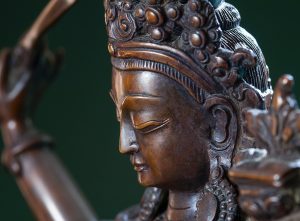 |
Esoteric Buddhism Overview of Buddhism's rich and complex esoteric traditions in the Himalayan region and South, Southeast, and East Asia, with particular emphasis on texts, commentaries, and practices from a variety of traditions, locales and time periods. |
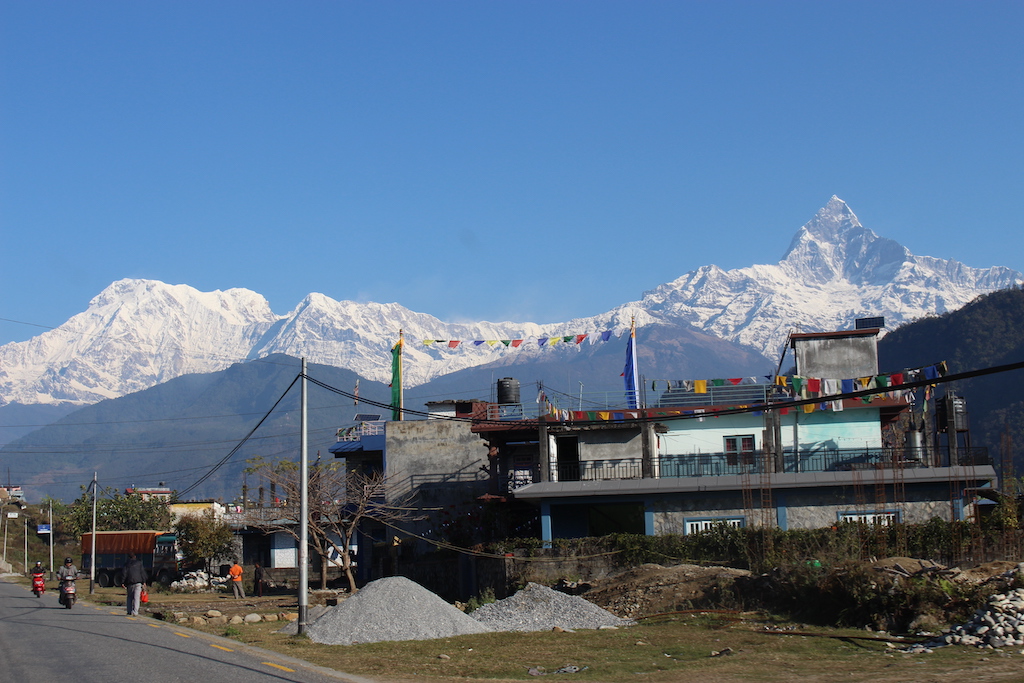 |
Ethnography of the Himalaya: Diversity and Development Ethnographic engagement with lives of people in and from the Himalayan region: including parts of Bhutan, China, India, Nepal, Pakistan; Tibetan cultural zones traversing these countries; and diasporas. |
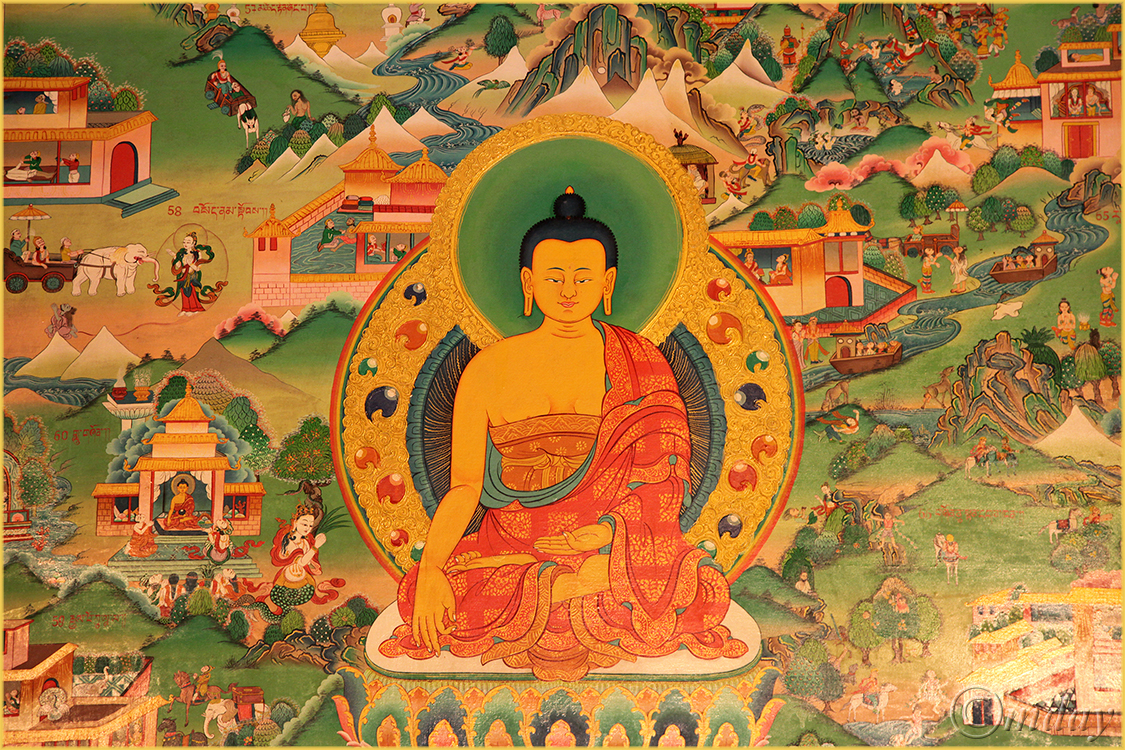 |
Tibetan Buddhism The course provides an introduction to the religions of Tibet in general and particularly Tibetan Buddhism. The course focuses on the formation of a unique system of Buddhist practices and its history of the development of institutions, doctrines, rituals, different schools and literary practices. The course will examine the historical development of Tibetan Buddhism from the 7-8th Century to the present spread of Tibetan Buddhism in the West. Whilst we will examine the subject chronologically, the course will also examine thematic issues, such as the establishment of institutions of the Trulku (Incarnate Lamas) and the Dalai Lama, monasteries and esoteric teachings. |
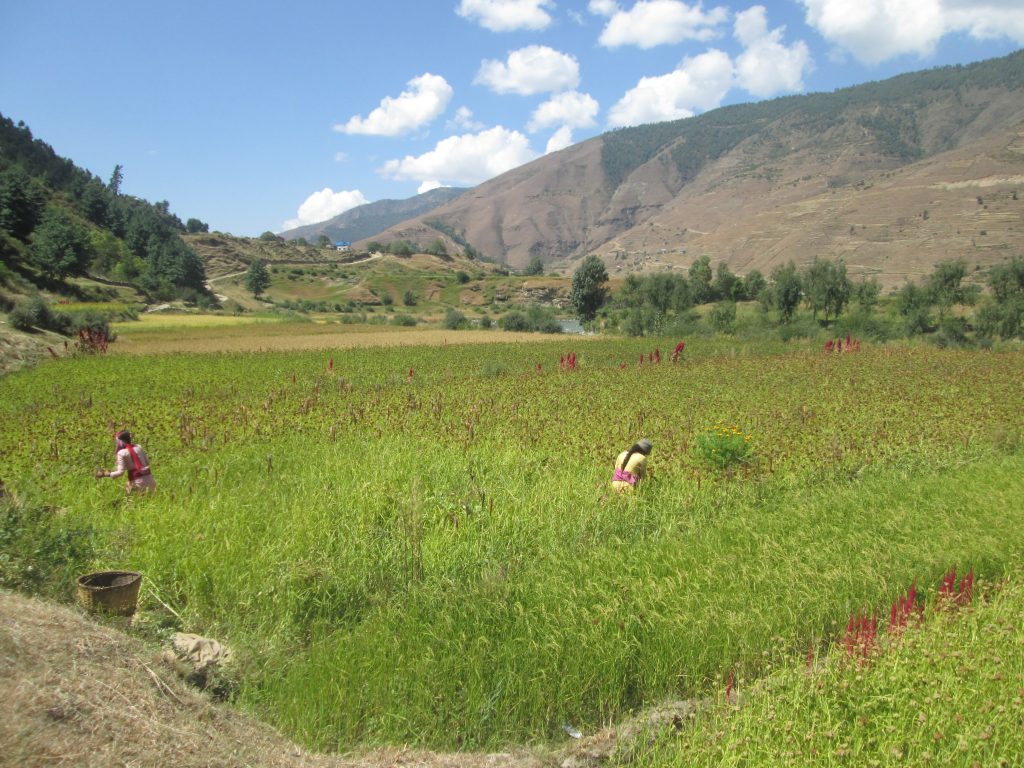 |
Indigenous Peoples and Climate Change Indigenous Peoples and Climate Change. For more information, consult the departmental website: http://fnsp.arts.ubc.ca. |
 |
Indigenous Environmentalism in Asia This course will examine human-environment relationships through the works of Indigenous scholars from different parts of Asia to understand the position, the context, and the material with which they illuminate Indigenous environmentalism. By centering Indigenous communities and their experiences, students will learn about a rich variety of ways Indigenous environmentalism is embodied, expressed, and experienced. For more information, please visit https://asia.ubc.ca/grad-courses/ |
 |
Introduction to Tibetan I Concepts, grammar, syntax of spoken and written Tibetan for beginners. Also covers aspects of Tibetan worldview. |
|
 |
Introduction to Tibetan II Focus on grammar, syntax, and structures to improve comprehension and communication skills. Also covers aspects of Tibetan worldview. |
|
 |
Classical Tibetan I The basics of classical Tibetan grammar and vocabulary, with readings from a selection of daily prayer verses. |
|
 |
Tibetan Buddhism The course provides an introduction to the religions of Tibet in general and particularly Tibetan Buddhism. The course focuses on the formation of a unique system of Buddhist practices and its history of the development of institutions, doctrines, rituals, different schools and literary practices. The course will examine the historical development of Tibetan Buddhism from the 7-8th Century to the present spread of Tibetan Buddhism in the West. Whilst we will examine the subject chronologically, the course will also examine thematic issues, such as the establishment of institutions of the Trulku (Incarnate Lamas) and the Dalai Lama, monasteries and esoteric teachings. |
|
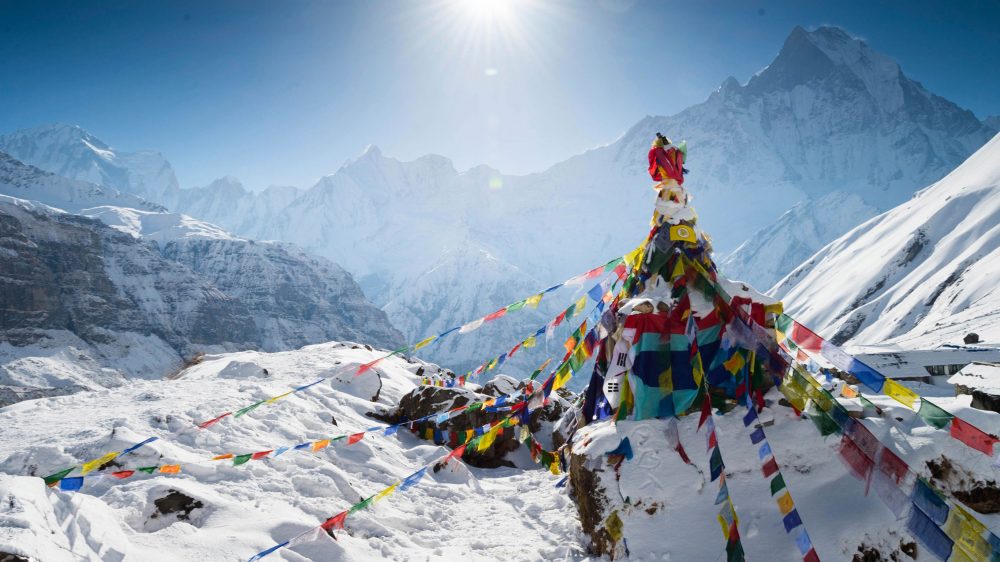 |
Tibetan and Himalayan Culture and Society The Himalayas -- stretching from Northern Pakistan to Myanmar to China, with the Tibetan Plateau occupying a central position, have long captured the global imagination. The mountainous region has become a site of mass tourism and attracted academic studies in a variety of fields, from anthropology and religious studies to development and environmentalism. This course introduces ways of understanding the Himalayan region through interdisciplinary approaches in social sciences and the humanities. Students will explore the languages, history, ethnicities, and religious traditions of the Himalayas, as well as popular representations of them in the West. This course will also examine specific topics, such as the history and impact of trekking, mountaineering, and the imperatives of development and conservation. |
|
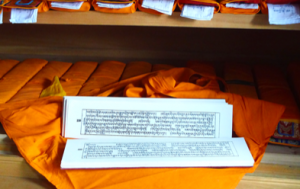 |
Tibetan Literature, Genres and Book Culture Why not be amazed about the beauty of mystic Buddhist songs written by great Tantric adepts about the nature of mind, steer through the complexity of philosophical treatises of great Tibetan Buddhist scholars, or read about the thrilling adventures of the glorious King Gesar in epic literature? In this course, we will discuss Tibetan literature and genres as well as aspects of material religious culture such as manuscripts and block prints. Students will have the opportunity to read and critically analyze Tibet’s key literary works in English translation and apply theories and methods from the field of literary and material culture studies. The focus this year will be on Tibetan Buddhist literature. Instructor: Dagmar Schwerk |
|
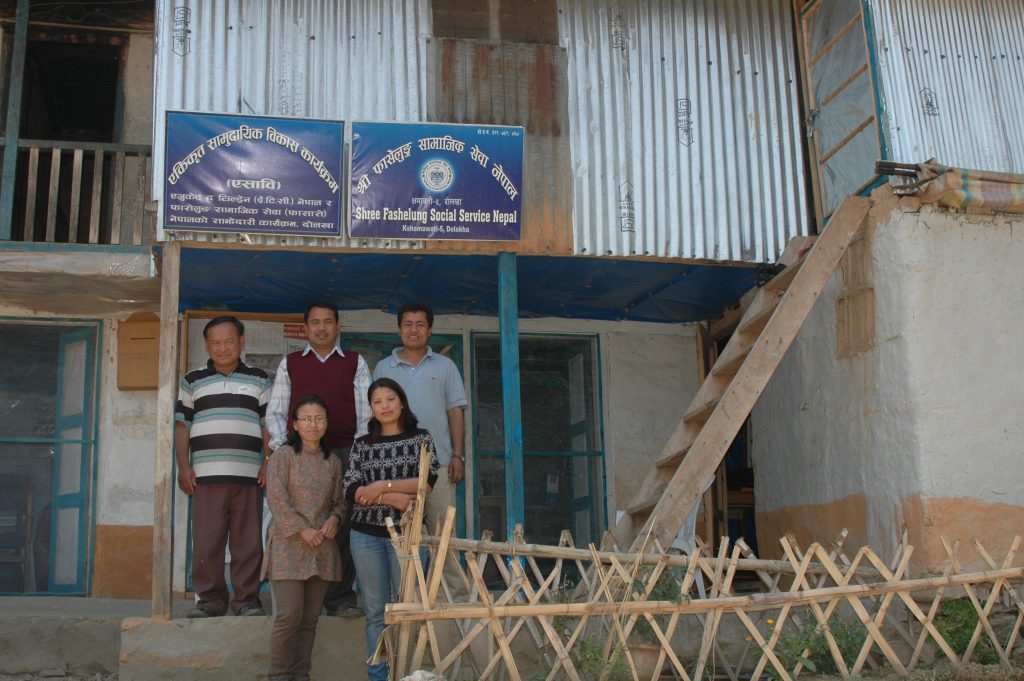 |
Development Discourses and Practices What is development? How can the micro and macro aspects of engineering progress be balanced to yield the best possible results? This course draws upon critical social science literatures, as well as writings by development practitioners, to address key questions of development theory and practice. It offers an overview of the rise of development thought, and an assessment of the outcomes of development for countries and communities across the world under different regimes, from authoritarian states to plural democracies in political transitions and into and out of communism and socialism. |
 |
Introduction to Tibetan I Concepts, grammar, syntax of spoken and written Tibetan for beginners. Also covers aspects of Tibetan worldview. |
|
 |
Introduction to Tibetan II Focus on grammar, syntax, and structures to improve comprehension and communication skills. Also covers aspects of Tibetan worldview. |
|
 |
Classical Tibetan I The basics of classical Tibetan grammar and vocabulary, with readings from a selection of daily prayer verses. |
|
 |
Tibetan Buddhism The course provides an introduction to the religions of Tibet in general and particularly Tibetan Buddhism. The course focuses on the formation of a unique system of Buddhist practices and its history of the development of institutions, doctrines, rituals, different schools and literary practices. The course will examine the historical development of Tibetan Buddhism from the 7-8th Century to the present spread of Tibetan Buddhism in the West. Whilst we will examine the subject chronologically, the course will also examine thematic issues, such as the establishment of institutions of the Trulku (Incarnate Lamas) and the Dalai Lama, monasteries and esoteric teachings. |
|
 |
Tibetan and Himalayan Culture and Society The Himalayas -- stretching from Northern Pakistan to Myanmar to China, with the Tibetan Plateau occupying a central position, have long captured the global imagination. The mountainous region has become a site of mass tourism and attracted academic studies in a variety of fields, from anthropology and religious studies to development and environmentalism. This course introduces ways of understanding the Himalayan region through interdisciplinary approaches in social sciences and the humanities. Students will explore the languages, history, ethnicities, and religious traditions of the Himalayas, as well as popular representations of them in the West. This course will also examine specific topics, such as the history and impact of trekking, mountaineering, and the imperatives of development and conservation. |
|
 |
Tibetan Literature, Genres and Book Culture Why not be amazed about the beauty of mystic Buddhist songs written by great Tantric adepts about the nature of mind, steer through the complexity of philosophical treatises of great Tibetan Buddhist scholars, or read about the thrilling adventures of the glorious King Gesar in epic literature? In this course, we will discuss Tibetan literature and genres as well as aspects of material religious culture such as manuscripts and block prints. Students will have the opportunity to read and critically analyze Tibet’s key literary works in English translation and apply theories and methods from the field of literary and material culture studies. The focus this year will be on Tibetan Buddhist literature. Instructor: Dagmar Schwerk |
|
 |
Development Discourses and Practices What is development? How can the micro and macro aspects of engineering progress be balanced to yield the best possible results? This course draws upon critical social science literatures, as well as writings by development practitioners, to address key questions of development theory and practice. It offers an overview of the rise of development thought, and an assessment of the outcomes of development for countries and communities across the world under different regimes, from authoritarian states to plural democracies in political transitions and into and out of communism and socialism. |
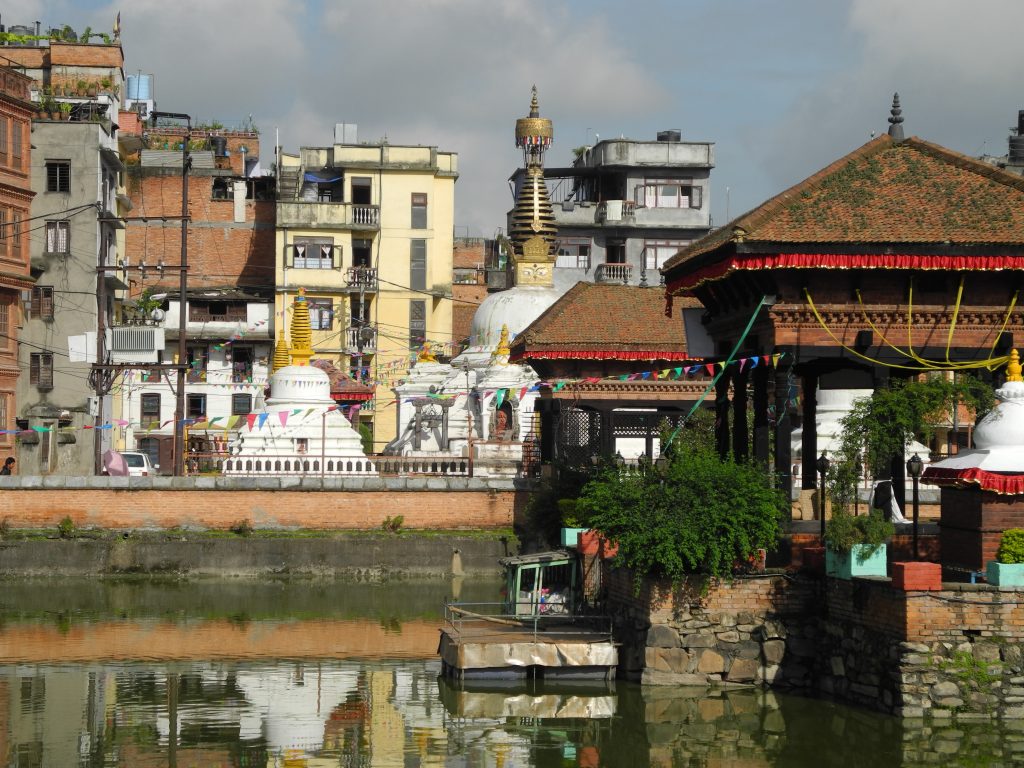 |
Ethnography of South Asia This course introduces students to the cultural, social, political and religious lives of people in and from the region known as “South Asia”. Students will also learn about key debates in the anthropological study of the region, from classical concerns about caste and kinship to contemporary discussions of urbanization, development, health, conflict, and natural disasters. Throughout the course, we focus on the production of different kinds of “South Asian” identities, including regional, national, ethnic, linguistic, gendered and political forms of self-definition in both South Asian and diasporic locations. Lectures and readings cover a broad range of material from Bhutan, Bangladesh, India, the Maldives, Nepal, Pakistan, and Sri Lanka. Students will have several opportunities to focus in-depth on their own regional and thematic interests. Instructor: Sara Shneiderman |
|
 |
Tibetan Buddhism “Every valley has its dialect - each Guru their Buddhist teaching.” (Tibetan proverb) What is a Guru? Why meditate in caves? How to determine an incarnation? This course introduces into Tibet’s religious and political history and the formation of Tibetan Buddhism since the 7th century. In particular, we will focus on Tibetan Buddhist philosophy, meditative practices and rituals as well as ethics in the four main Tibetan Buddhist traditions. Special topics include the globalization of Tibetan Buddhism and gender. Students will gain insight into the rich religious landscape of the Tibetan cultural area in past and present and will be introduced to key terms of Tibetan Buddhism. Besides scholarly literature, we will engage with film and other visual representations of Tibetan material religious culture, such as arts and architecture. Instructor: Dagmar Schwerk (Term 1), Tsering Shakya (Term 2) |
|
 |
Tibetan and Himalayan Culture and Society The Himalayas -- stretching from Northern Pakistan to Myanmar to China, with the Tibetan Plateau occupying a central position, have long captured the global imagination. The mountainous region has become a site of mass tourism and attracted academic studies in a variety of fields, from anthropology and religious studies to development and environmentalism. This course introduces ways of understanding the Himalayan region through interdisciplinary approaches in social sciences and the humanities. Students will explore the languages, history, ethnicities, and religious traditions of the Himalayas, as well as popular representations of them in the West. This course will also examine specific topics, such as the history and impact of trekking, mountaineering, and the imperatives of development and conservation. Instructor: Tsering Shakya |
|
 |
Tibetan Literature, Genres and Book Culture Why not be amazed about the beauty of mystic Buddhist songs written by great Tantric adepts about the nature of mind, steer through the complexity of philosophical treatises of great Tibetan Buddhist scholars, or read about the thrilling adventures of the glorious King Gesar in epic literature? In this course, we will discuss Tibetan literature and genres as well as aspects of material religious culture such as manuscripts and block prints. Students will have the opportunity to read and critically analyze Tibet’s key literary works in English translation and apply theories and methods from the field of literary and material culture studies. The focus this year will be on Tibetan Buddhist literature. Instructor: Dagmar Schwerk |
|
 |
Introduction to Tibetan I Concepts, grammar, syntax of spoken and written Tibetan for beginners. Also covers aspects of Tibetan worldview. Instructor: Sonam Chusang |
|
 |
Introduction to Tibetan II Concepts, grammar, syntax of spoken and written Tibetan for beginners. Also covers aspects of Tibetan worldview. Instructor: Sonam Chusang |
|
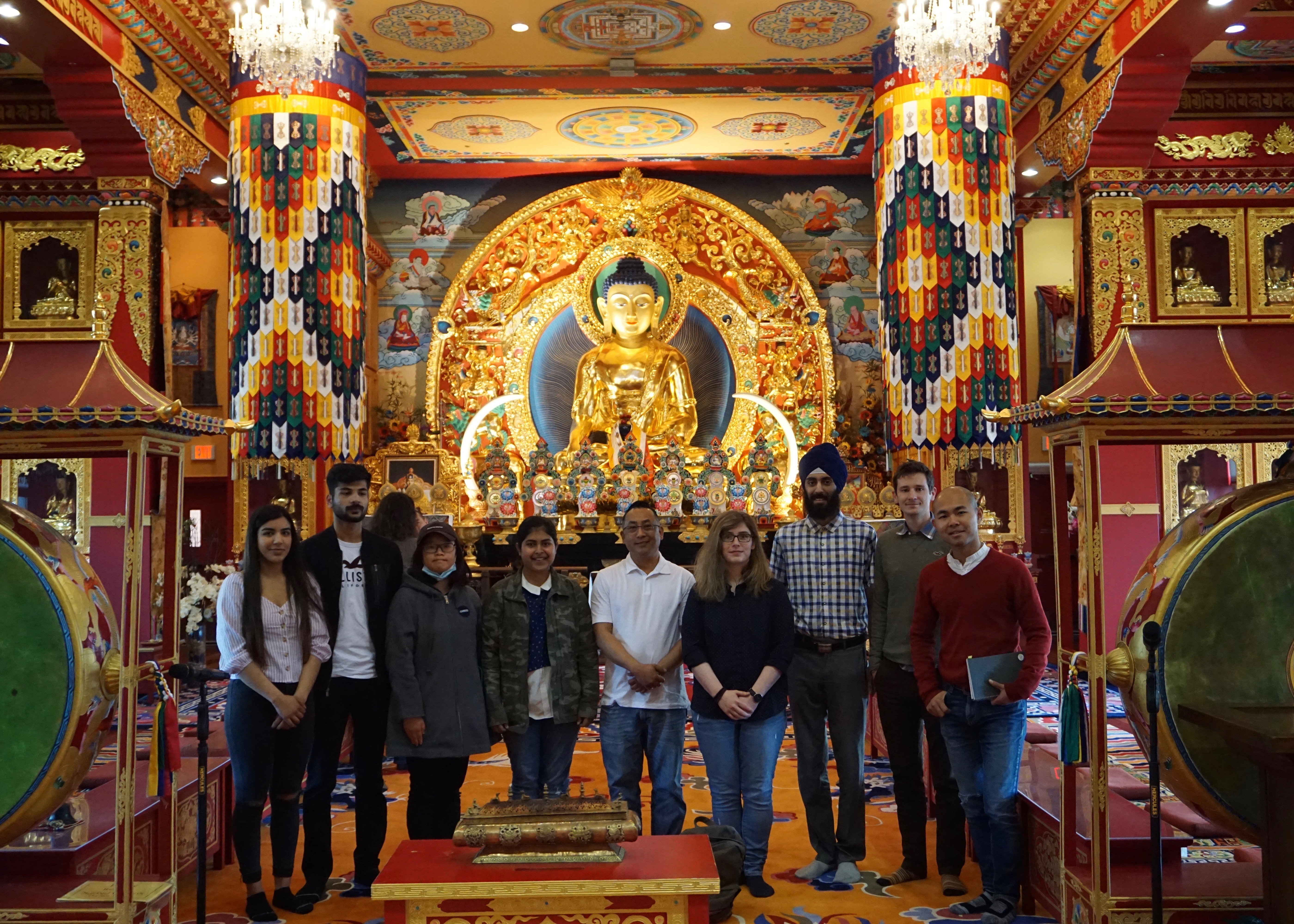 |
Nepali Language in a Community Context Beginner to conversational level Nepali combined with experiential learning and cultural activities with local Nepali community organizations. Interactive practice with everyday phrases, grammar structure, and vocabulary with Nepali community members. Instructor: Binod Shrestha |
|
 |
Tibetan Language in a Community Context Beginner to conversational level Tibetan combined with experiential learning and cultural activities with local Tibetan community organizations. Interactive practice with everyday phrases, grammar structure, and vocabulary with Tibetan community members. Instructor: Sonam Chusang |
 |
Introduction to Tibetan I Concepts, grammar, syntax of spoken and written Tibetan for beginners. Also covers aspects of Tibetan worldview. |
|
 |
Introduction to Tibetan II Concepts, grammar, syntax of spoken and written Tibetan for beginners. Also covers aspects of Tibetan worldview. |
|
 |
Tibetan Buddhism The course provides an introduction to the religions of Tibet in general and particularly Tibetan Buddhism. The course focuses on the formation of a unique system of Buddhist practices and its history of the development of institutions, doctrines, rituals, different schools and literary practices. The course will examine the historical development of Tibetan Buddhism from the 7-8th Century to the present spread of Tibetan Buddhism in the West. Whilst we will examine the subject chronologically, the course will also examine thematic issues, such as the establishment of institutions of the Trulku (Incarnate Lamas) and the Dalai Lama, monasteries and esoteric teachings. |
|
 |
Tibetan and Himalayan Culture and Society The Himalayas -- stretching from Northern Pakistan to Myanmar to China, with the Tibetan Plateau occupying a central position, have long captured the global imagination. The mountainous region has become a site of mass tourism and attracted academic studies in a variety of fields, from anthropology and religious studies to development and environmentalism. This course introduces ways of understanding the Himalayan region through interdisciplinary approaches in social sciences and the humanities. Students will explore the languages, history, ethnicities, and religious traditions of the Himalayas, as well as popular representations of them in the West. This course will also examine specific topics, such as the history and impact of trekking, mountaineering, and the imperatives of development and conservation. |
|
 |
Nationalism, Religion & Ethnic Conflicts in Asia (Graduate Seminar) Asian nations emerged out of anti-colonial movement. As each sought ideas that supported a singular nation or strong nationalism, Asian states often looked to secular ideas that de-emphasized religious and ethnic differences even as they relied upon religious or cultural ideas that emphasized national sameness. In contemporary Asia, this has given rise to a complex situation in which religious and ethnic identities are emerging to the fore. The course will focus on the kinds of ethnic and religious conflict that are prevalent in Asia, and how these relate to the historical and dialectic development of different forms of nationalism. The course will examine the confluence between religion, ethnicity, and nationalist ideologies in the escalation of conflicts in different Asian societies. |
|
 |
Asian Architecture: Sacred and Urban Spaces |
|
 |
Tibetan Buddhism |
|
 |
Tibetan and Himalayan Culture and Society |
|
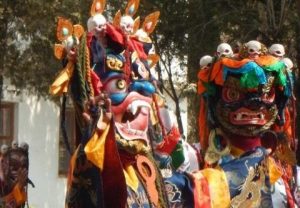 |
Nepal and Tibet: Art, Ritual, and Performance |
|
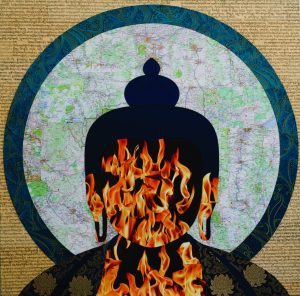 |
Representing Old Buddhas in New Clothes? Exploring Contemporary Tibetan Art |
|
 |
Nationalism, Religion & Ethnic Conflicts in Asia (Graduate Seminar) |
|
 |
Asian Architecture: Sacred and Urban Spaces |
|
 |
Ethnography of South Asia |
|
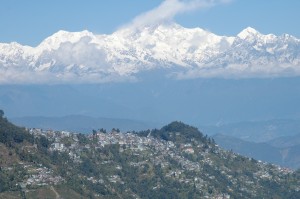 |
Esoteric Buddhism |
|
 |
Tibetan and Himalayan Culture |
|
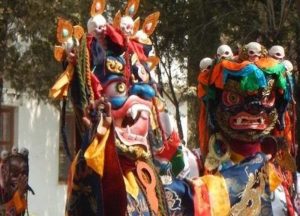 |
Nepal and Tibet: Art, Ritual and Performance |
|
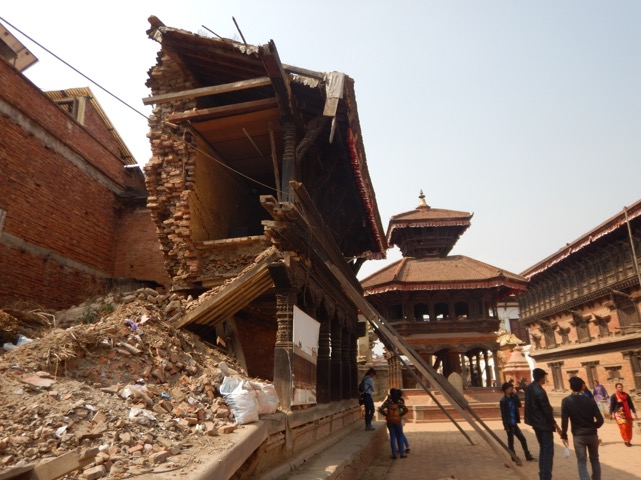 |
Kathmandu in ruins: Heritage sites, settlements and reconstruction in post-earthquake Nepal This timely seminar will draw on the extensive photographic documentation and archival material Professor Hacker assembled while in Kathmandu in 2016. There is no prerequisite for this course and students from different disciplines and training are all welcome. |
|
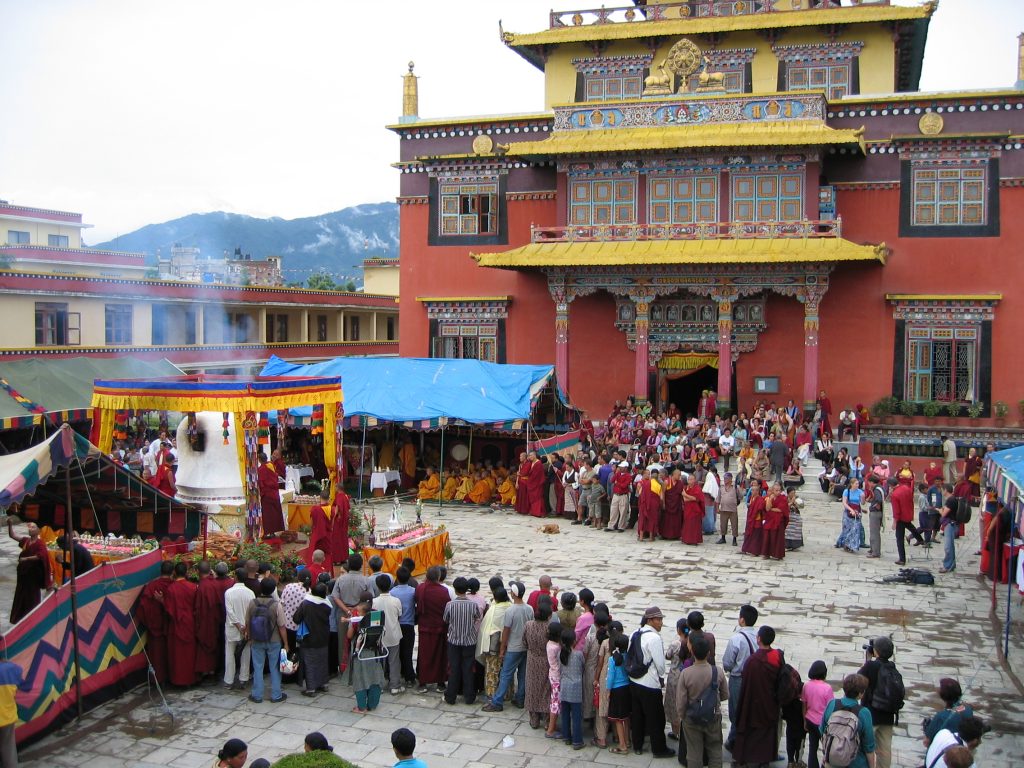 |
Religion and Society |
|
 |
Philosophical and Ethical Foundations for Public Policy |
|
 |
Development Discourses and Practices |
|
 |
Nationalism, Religion, and Ethnic Conflict in Asia |
 |
|